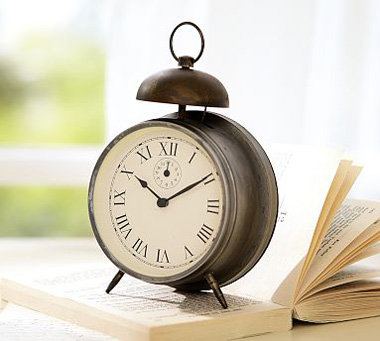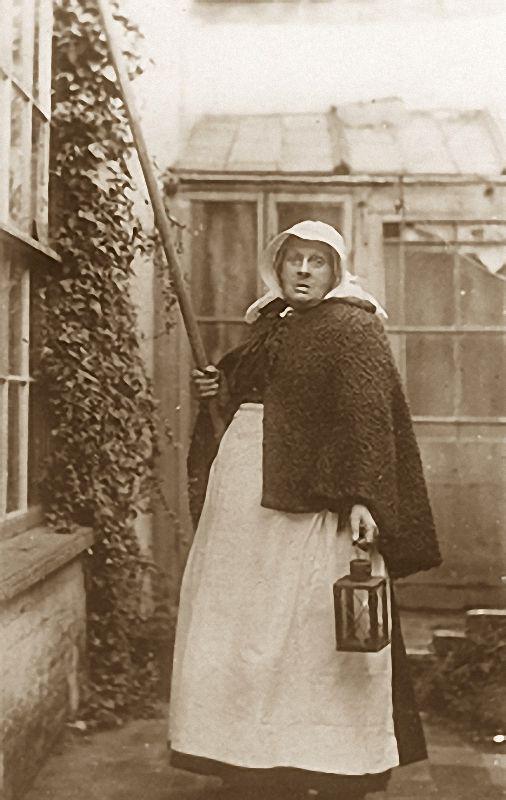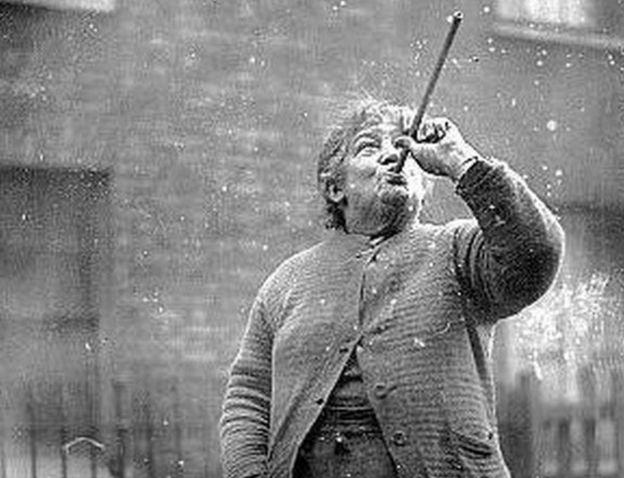 Morning comes early for me. Once a night owl, I’m now one of the earliest risers of my acquaintance. I have the advantage of setting an alarm clock for 4:30 in the morning and hitting the snooze button several times if I’m not quite ready to greet the day.
Morning comes early for me. Once a night owl, I’m now one of the earliest risers of my acquaintance. I have the advantage of setting an alarm clock for 4:30 in the morning and hitting the snooze button several times if I’m not quite ready to greet the day.
Before the advent of the alarm clock, an entire profession emerged for the sole purpose of waking sleepy workers to ensure they made it to work on time. The Knocker Up was a common sight in Britain and Ireland during the Industrial Revolution, particularly in the northern mill towns and big cities like London and Dubline where people worked unusual shifts in factories or on the docks, often needing to be at work as early as three a.m.
The trade spread rapidly across the country particularly in areas where poorly paid workers were required to work shifts but could not afford their own watches. Some factories employed their own knocker-ups to ensure their employees arrived on time. In return for their services, knocker-ups were paid a few pence a week.
As more people employed the services of knocker-ups, neighbors who did not desire to be woken at odd hours began complaining about the loud noise the knocker-ups made when ringing bells and rapping on widows to rouse their sleepy customers. The solution they devised was modifying a long stick, with which to tap on the bedroom windows of their clients, loudly enough to rouse those intended but softly enough not to disturb the rest.

Some of the more adventurous knocker ups, like Mary Smith of London’s East End (shown below) employed pea shooters to hurl dried peas at windows until the sleeper within woke up.

Even Charles Dickens mentioned the trade in his 1861 novel Great Expectations when one of the characters, Mr. Wopsle, loses his temper over “being knocked-up” in the morning.
Another account appeared in an article in the Huron Expositor in 1878. A Canadian reporter interviewed a retired knocker-upper about her profession. Mrs. Waters served between 35 and 95 people, mostly in the period between five and six in the morning. She also recalls the bad temper of some of her customers who, like the Dickens’ character, just couldn’t hold their morning temper when she attempted to rouse them.
“There was one man in particular: he had to be up at five o’clock; he was given to drink, by the way; so that he was not only hard to awaken, but he never came to the window, but he indulged in angry mutterings, and I heard at times an oath slip out of his mouth.”
With the spread of electricity and affordable alarm clocks, however, knocking up had died out in most places by the 1940s and 1950s.
Yet the trade continued in some pockets of industrial England until the early 1970s and even became immortalized in songs like the one below by folk singer-song writer, Mike Canavan:
“Through cobbled streets, cold and damp, the knocker-upper man is creeping.
“Tap, tapping on each window pane, to keep the world from sleeping…”
What gets you up in the morning?
